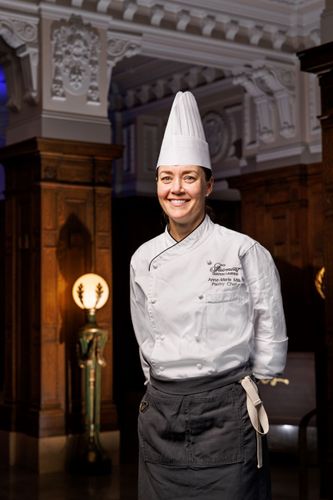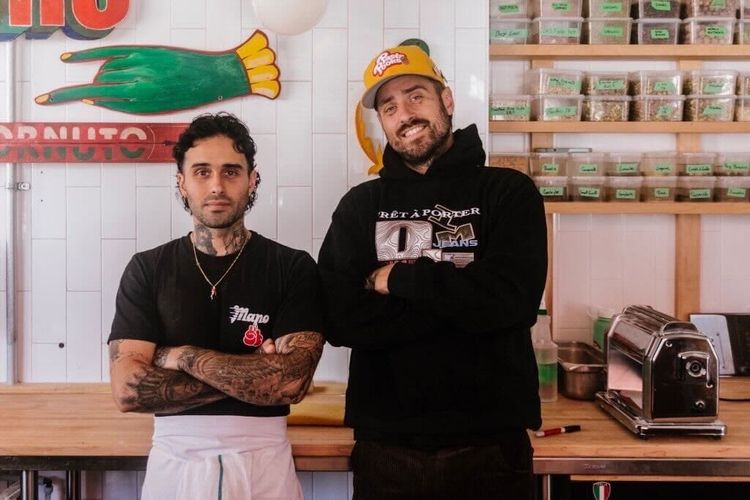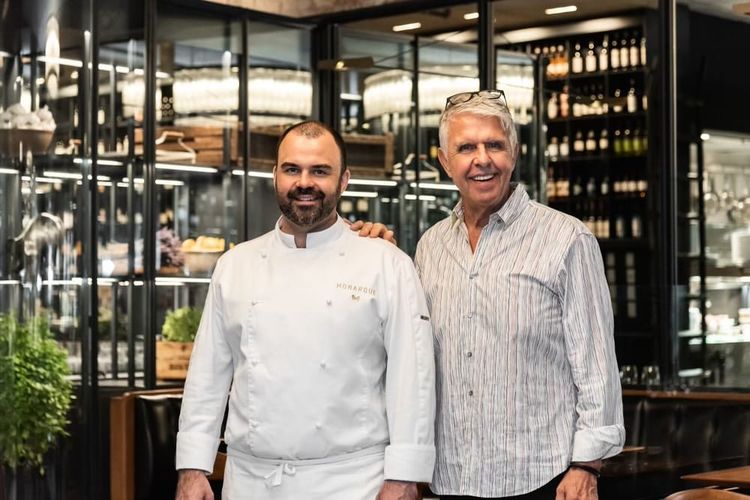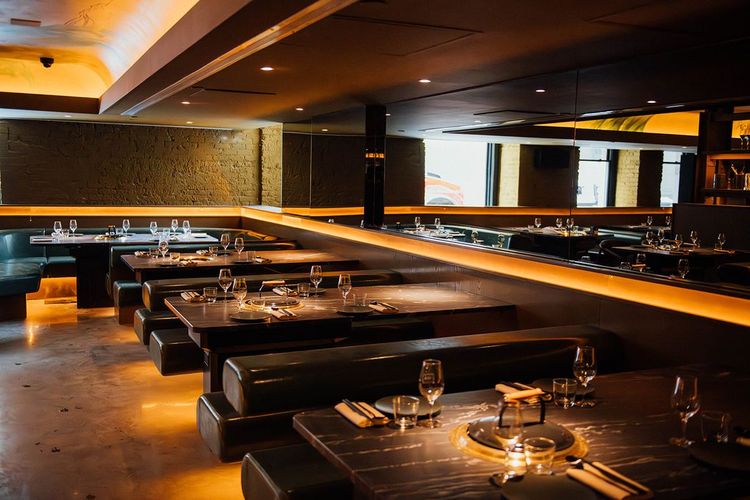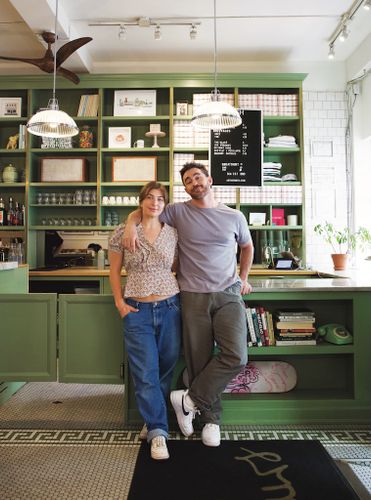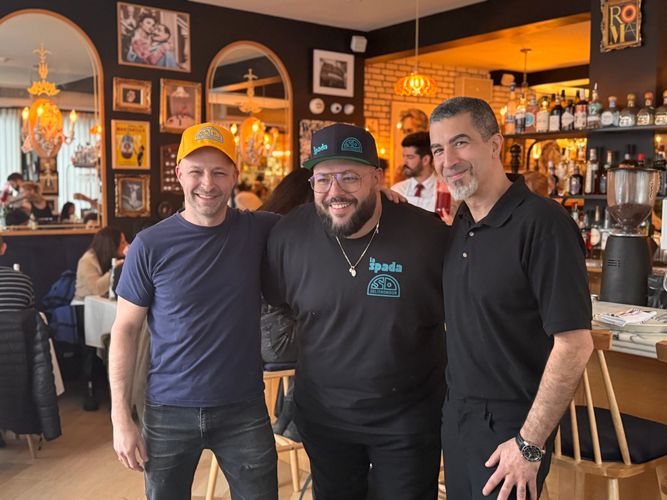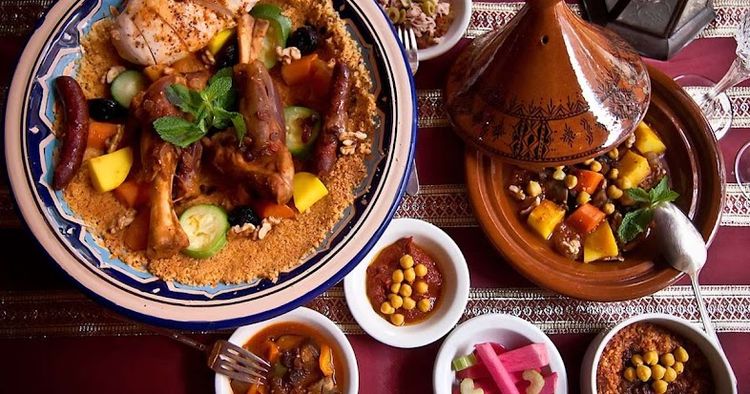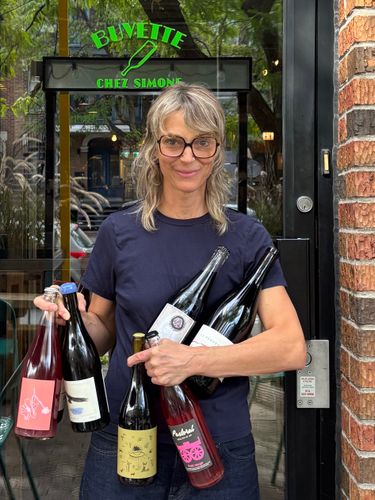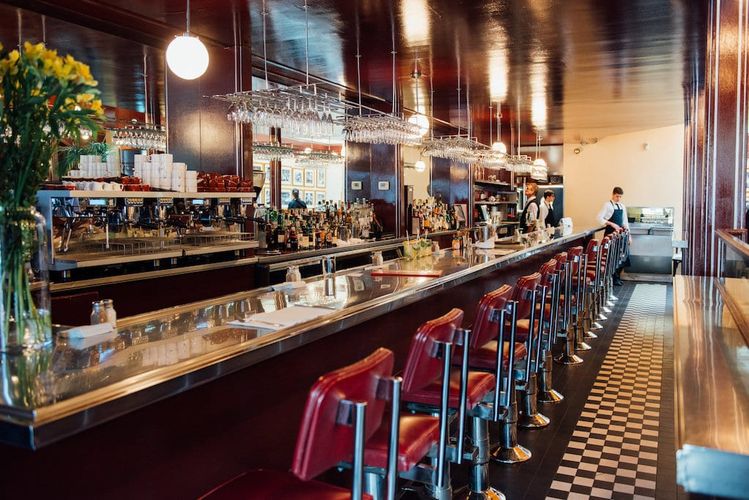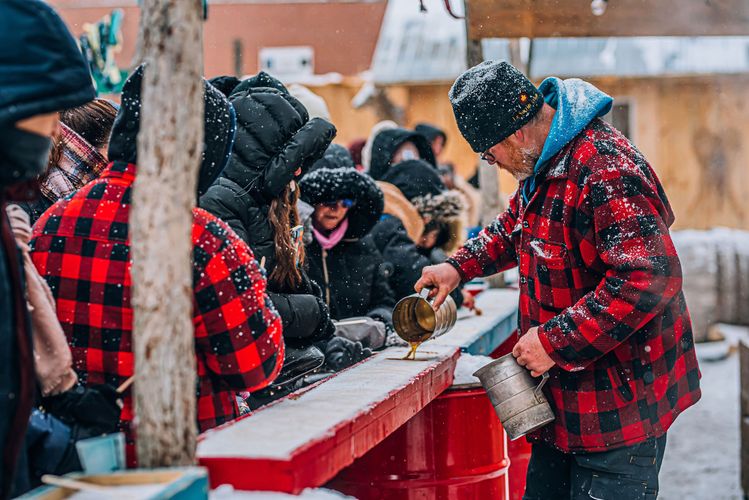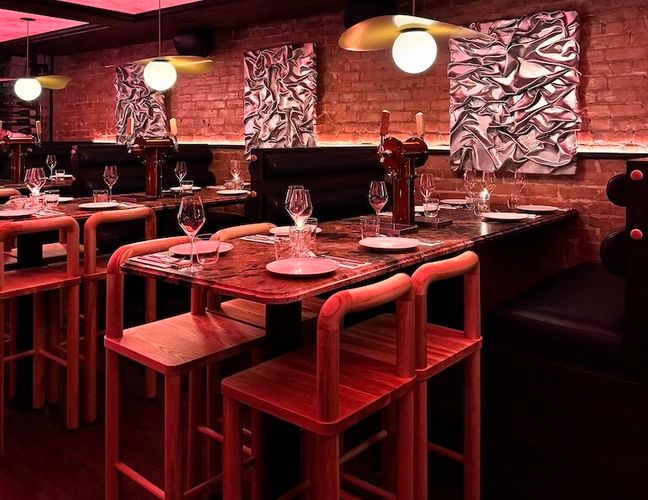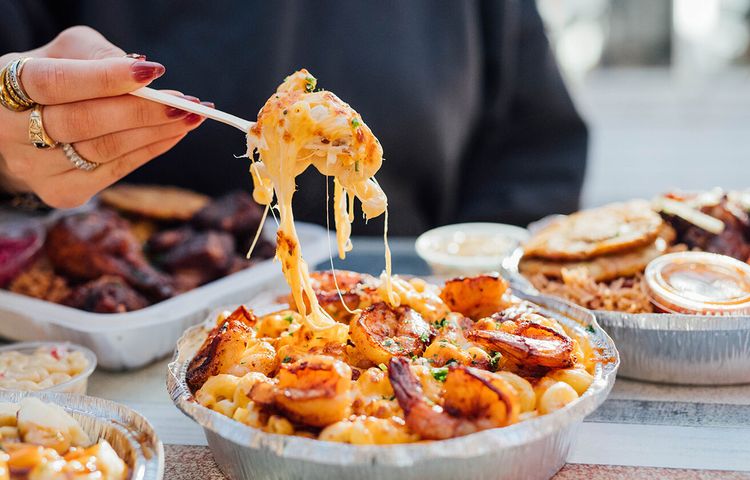Benji Greenberg: A Life Centered Around Food
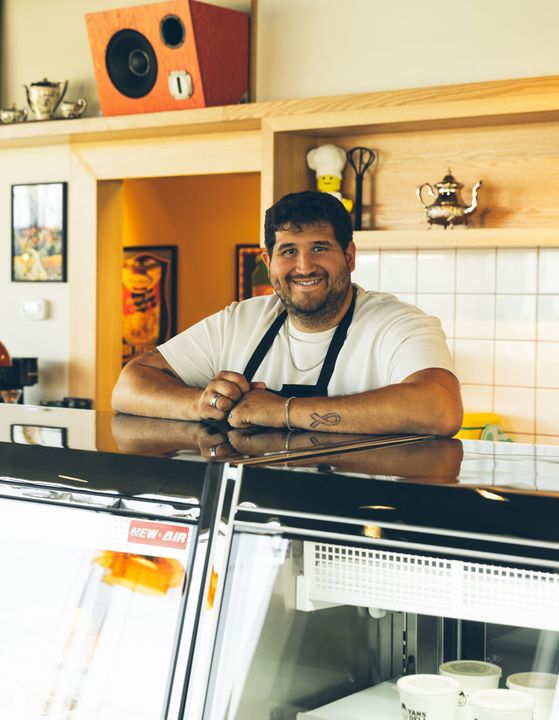
The journey of a curious, passionate, and bold chef who’s opening his first restaurant next week!
When you ask Benji Greenberg where his love of cooking comes from, he doesn’t hesitate: “My family—we were always cooking.”
At the Greenbergs’, everything revolved around the table. Every Friday, both sides of the family—maternal and paternal—would gather to eat together. “On my dad’s side, it was my grandmother Bobbi who cooked: chicken soup, roast beef, brisket, eggplant salad… Very Romanian,” Benji recalls with a smile. “On my mom’s side, it was my grandfather who cooked: lobster, shrimp cocktail, oysters… Kind of weird for a Jewish family, but we loved it.”
These family meals were more than traditions—they were real taste rituals. “I was the kind of kid who wanted to stay with the adults to eat, not go play right away. It was too important to me,” he says, laughing.
The kitchen as refuge
At 11 or 12 years old, a twist of fate changed his life. Just as he was about to leave for summer camp, he dislocated his hip. All his friends were away; he was stuck at home. “It was 2002 or 2003. No Netflix back then—just daytime TV. And mostly, it was cooking shows.”
He stumbled upon Licensed to Grill, an early 2000s cooking show, and Emeril Live. It was a revelation. He watched, took notes, experimented. It became a game, a challenge—a passion.
At home, cooking quickly became a necessity: “My mom is amazing, but really not the best cook. It’s a running joke in our house. She’d make dishes and tell us they weren’t that bad, just add hot sauce or ketchup and you’re good to go.”
Through constant experimentation, Benji quickly developed a taste for well-made food and culinary challenges. He started surprising his family with impromptu dinners, and by high school, he was grilling BBQs for coworkers.
From Mas des Oliviers to New York: An unusual start
At 17, he already knew traditional school wasn’t for him. He landed his first unpaid internship at Le Mas des Oliviers. He peeled vegetables, washed oysters. But most of all, he discovered fire, knives, kitchen swearing… and he loved it. “It was so cool! The atmosphere was way better than in any classroom.” He soon asked himself: What do I do with this? He enrolled at the Culinary Institute of America in New York. “I didn’t even know a school like that existed—just to learn to cook!”
He immersed himself in it: culinary history, technique, readings, practice. He worked with his hands, learned the basics—but also the culture behind food.
Next, he traveled to China for a study program on food and agriculture. He explored rural markets, tried everything—except dog. “You have to make yourself uncomfortable. That always leads somewhere new.” Then came Napa Valley, where he studied under Larry Forgione, a pioneer of American farm-to-table. Three days on the farm, two days in the kitchen. “You build the menu from what you harvest. That’s what guides your cooking. I loved that experience.”
Chicago, California, and the return to Montreal
After his studies, he moved to Chicago. He worked at Momotaro (Boka Group), trained in Japanese techniques under highly skilled chefs, then interned at Single Thread, a fine dining temple in California. “I realized fine dining wasn’t for me. Too complex, too fussy. I like when food is good, but not pretentious. I don’t like being one of 15 chefs plating a dish.” Still, he holds a deep love for that region: Tomales Bay, oysters, wine, and food connected to the land.
During this time, he also did a six-month internship in Las Vegas at CUT by Wolfgang Puck, where he fell in love with the steakhouse atmosphere and deepened his knowledge of beef cuts and types.
In 2017, he returned to Montreal. “I made a quick detour to Edmonton, but didn’t enjoy it.”
His childhood friend Zach Kolomeir, also a CIA graduate, had just become the chef at Joe Beef. The two had known each other since they were kids. “We played street hockey together.”
Zach called: “Wanna come?” Benji said yes.
Seven years at Joe Beef: the school of instinct and resourcefulness
He thought he’d stay a year. He stayed seven. His first day? “We set the kitchen on fire. Literally.” Welcome to Joe Beef! After the fire was put out, he was told that service was canceled—yet guests would still be arriving at 8 p.m. He thought, “Wait, am I fired?!” Nope—just a regular Tuesday night.
Things moved fast, and everything was intense. In his second week, a rapper showed up and blocked the street. Visiting chefs dropped in. Pierre Koffmann sat at a table. The energy was fast, chaotic, exciting. “There wasn’t much structure. They’d say: make corn chowder, but make it really good. So you make your chowder… and your colleague decides to add a mountain of truffles to it! That was the spirit!”
Benji had done stages in three-Michelin-star kitchens, but he preferred Joe Beef’s intuitive, hands-on approach. “You get good fast because you have to adapt. It takes a certain type of cook—but for those who thrive in it, it’s incredible.”
Benji loves chaos—but knows how to manage it. He kept learning: butchery, sauces, meats. “I’d wake up not knowing how I’d make it through the day—but I always did. And I loved how much they trusted us. I learned incredibly fast.”
The turning point: Is this my time?
With Fred Morin and David McMillan, everything flowed on instinct. After Jean-Philippe Miron joined, more structure was put in place—a necessary move to run so many restaurants.
Then the pandemic hit. By spring 2023, Benji felt the spirit of the restaurant had changed. “Joe Beef became more structured, volumes went up, but it wasn’t the same place I had grown up in. And that’s totally fine. But I asked myself: is this my time?”
He came back from winter vacation, looked around the kitchen—and knew. After seven intense years, second-degree burns, 18-hour shifts—he didn’t want to do another summer like that. He was ready to strike out on his own.
The dream of a modern deli
The spark came when he saw a post announcing the closure of Montreal Smoked Meat in Pointe-Saint-Charles. Then one day, eating at Snowdon Deli—where he’s been going for 30 years—he thought something had shifted. “Someone needs to open a delicious Jewish deli in Montreal.”
But not one stuck in the past—a modern deli, with quality ingredients, made in-house, inspired by roots but grounded in the present.
Benji set off on a trip with his father: Antwerp, Bucharest, Munich, Berlin, Brașov. He explored the roots of Eastern European Jewish cuisine: karnatzel, pastrami, eggplant salad… He dove into the culinary history of diasporas. One night in Romania, his father, emotional, said: “Eating here feels like eating at home.”
Yans Deli: A life’s project
Next week, Benji is opening Yans Deli. A passion project, located in a fast-growing neighborhood. Simple, homey cooking—but with all his skill behind every plate.
No oysters or lobster here. People will come for brunch, steak and eggs with veal schnitzel, housemade pastrami, a properly made soup. They’ll come for a generous, unpretentious experience—with top-quality ingredients.
The restaurant on Ferrier Street will have parking, an accessible washroom, and even a changing table (!). “I want an inclusive place where you can come for brunch, a celebration, or a shiva. A simple place—but one where everything is done right and homemade—except the bagels.”
For those who knew him at Joe Beef, there’s no doubt: they’ll find the same Benji—still curious, still in love with food—but now grounded in his roots, with the energy of a chef finally doing exactly what he loves.
One to watch: Yans Deli officially opens this week! We can’t wait.
Written by Jean-Philippe Tastet
Photography by Scott Usheroff (Craving Curator)
